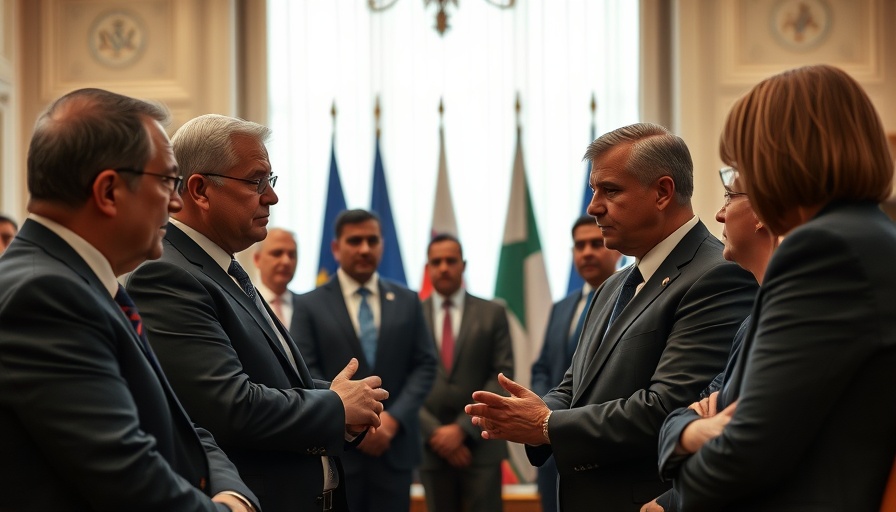
A Community’s Fight for Justice
In a historic move, residents of the River Parishes are taking a stand to protect the sacred burial grounds of enslaved ancestors as a new chemical plant is planned by Formosa Plastics. This legal battle, ignited by a profound respect for history and a desire for justice, showcases the growing concern for how industrial developments can retroactively affect cultural heritage sites.
Understanding the Lawsuit
The lawsuit, filed recently, stems from community frustration over Formosa Plastics' continuous attempts to limit public access to these burial grounds. Over the past six years, locals have voiced their concerns, emphasizing that the areas hold significant spiritual and historical value. The residents argue that proper respect and recognition of their ancestors' resting places are vital for cultural preservation and healing within the community.
Historical Context of the Site
The land at the center of this dispute sits within Louisiana's 'Cancer Alley,' a region notorious for its high concentration of industrial plants and associated health risks. The site is believed to contain the remains of enslaved people who worked on nearby plantations. Apart from the immediate environmental concerns posed by new chemical plants, the historical implications are profound. Advocates argue this is not merely about land use; it’s about honoring and preserving the legacy of those who suffered greatly.
Community Support and Solidarity
The River Parish community's fight has garnered attention from various advocacy groups, scholars, and historians who emphasize the value of such sites. Activists are rallying for more significant awareness regarding the impact of construction on gravesites, calling for stronger legal protections. Support from broader state and national organizations highlights the importance of recognizing and preserving African American history within Louisiana.
Counterarguments: Economic Development vs. Cultural Preservation
While many support the fight to protect these burial grounds, there are contrasting views emphasizing the necessity of economic development in the region. Proponents of the Formosa Plastics plant argue that investment in local manufacturing could create jobs and stimulate economic growth in an area historically dependent on agriculture. This dilemma places community values against economic incentives, raising complex questions about prioritizing growth over cultural heritage.
Future Predictions and Opportunities
Should the community succeed in their lawsuit, it may set a precedent for how burial sites are treated in future industrial developments. This ongoing legal battle could influence legislation in Louisiana regarding the preservation of historical sites, prompting more stringent regulations for companies looking to develop in sensitive areas. As societal values evolve, a greater appreciation for cultural history may come to influence decision-making in industrial projects.
Taking Action: How You Can Help
People interested in supporting the River Parish community can attend town hall meetings or participate in local advocacy groups focused on preserving historical sites. Voting for local leaders who prioritize cultural heritage and environmental justice is another significant way to influence policymaking. Recognizing the historical context of your surroundings can also foster meaningful conversations about the importance of cultural preservation in your own community.
The Emotional Toll on the Community
The anxiety surrounding the potential loss of sacred burial grounds emphasizes the emotional strain felt by the River parish residents. Being connected to ancestral roots creates a deep sense of identity, and the removal of these sites can feel like a continuation of a historical struggle against erasure. For many in the community, this fight for recognition is a fight against generational trauma, emphasizing the emotional weight behind their legal struggle.
In Conclusion
As we follow the developments of this critical lawsuit, it’s essential to recognize not just the legal battles, but the broader implications of these proceedings. Whether or not they succeed, the River Parish residents illuminate the ongoing struggle for historical recognition and respect in the face of progress. This lawsuit acts as a significant reminder that the past must be honored, and the lessons learned should guide our collective future.
If you want to join this conversation and contribute to the preservation of cultural history, consider engaging with local advocacy efforts and amplifying the voices that often go unheard. Protecting heritage sites ultimately enriches our communities and fosters a greater understanding of history.
 Add Row
Add Row  Add
Add 



Write A Comment